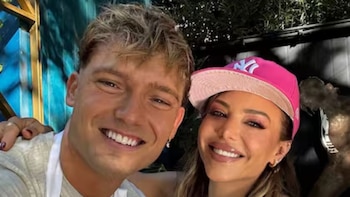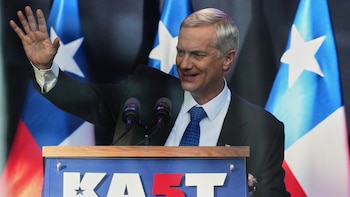Today, the World Anti-Doping Agency (WADA) publishes the 2020 List of Prohibited Substances and Methods (List); the 2020 Summary of Major Modifications and Explanatory Notes; and the 2020 Monitoring Program. The List, which was approved by WADA’s Executive Committee (ExCo) on 23 September 2019, comes into force on 1 January 2020.
The List, which is one of six International Standards that are mandatory for all Signatories of the World Anti-Doping Code (Code), designates what substances and methods are prohibited both in- and out-of-competition, and which substances are banned in particular sports.
WADA Director General Olivier Niggli said: "WADA is pleased to announce the publication of the 2020 Prohibited List. Updated annually, the List undergoes an extensive consultation period with a wide array of anti-doping stakeholders from around the globe. This is a very comprehensive process which aims to ensure that new substances and methods with doping potential – which are either currently on the market or in some cases still in clinical development – are included in the List. This helps us to protect not only the integrity of sport, but the health of athletes worldwide."
The List is released three months ahead of it taking effect so that athletes and their entourage can acquaint themselves with any modifications. Ultimately, athletes are responsible for prohibited substances found in their body and prohibited methods found to have been used. Athlete entourage are also liable for Anti-Doping Rule Violations if determined to be complicit. Consequently, if there is any doubt as to the status of a substance or method, it is important that they contact their respective Anti-Doping Organization (International Federation or National Anti-Doping Organization) for advice.
The List’s annual revision process is led by WADA, beginning with an initial meeting in January and concluding with the publication of the List by 1 October. This is an extensive consultation process that includes WADA’s List Expert Group – composed of some of the most highly qualified experts in the world – gathering information, including the latest scientific and medical research, trends, and intelligence gathered from law enforcement and pharmaceutical companies; circulating a draft List among stakeholders; taking their submissions into consideration; and revising the draft, followed by review by the Agency’s Health, Medical and Research (HMR) Committee. The HMR Committee then makes its recommendation to the WADA ExCo, which approves the List during its September meeting.
For a substance or method to be added to the List, it must be determined that it meets at least two of the following three criteria:
It has the potential to enhance or enhances sport performance
It represents an actual or potential health risk to the athletes
It violates the spirit of sport
It should be noted that for athletes who have a legitimate medical reason for using a prohibited substance or method that is on the List, they may be accommodated if they meet the criteria outlined in the International Standard for Therapeutic Use Exemptions (ISTUE). The TUE process has overwhelming acceptance from athletes, physicians and anti-doping stakeholders worldwide.
Languages and Formats
The 2020 Prohibited List; the 2020 Summary of Modifications and Explanatory Notes; and the 2020 Monitoring Program are available for download on WADA’s website in English and French with Spanish to follow shortly.
Stakeholders wishing to translate the List into other languages are kindly asked to signal their interest at info@wada-ama.org, by 31 October 2019. If interested, WADA would provide the necessary files and, once the translation is finalized, would make the List available on the Agency’s website.
The List’s mobile-friendly digital edition will go live on 1 January 2020.
25 Years at #1: Your best source of news about the Olympics is www.aroundtherings.com, for subscribers only
Últimas Noticias
Brigitte Henriques: “The important thing is that the women who are elected should be chosen for their ability, not because we are looking for modernization in terms of gender”
“When I was a girl I couldn’t find a club to play soccer in because most of them didn’t work with women,” Henriques tells Around the Rings during an in-depth interview in Crete, Greece.

The Hula Report: Winds of Change for ANOC in Crete
New leaders coming for peak Olympic group. Whether other candidates emerge in the months ahead, a contested election for the ANOC presidency will be a first for the organization.

Gilles Gilbert Gresenguet, presidential candidate for AFCNO: “We must take advantage of Paris 2024 to bring the Olympic Games back to French”
The elections take place November 18, and Abakar Djermah Aumi, president of the Chad Olympic Committee, is also aiming to win them.

USOPC announces 613-member 2020 U.S. Olympic Team

Roger Federer pulls out of Tokyo Olympics: "I am greatly disappointed"
(ATR) Federer cites "a setback with my knee" for the decision.




